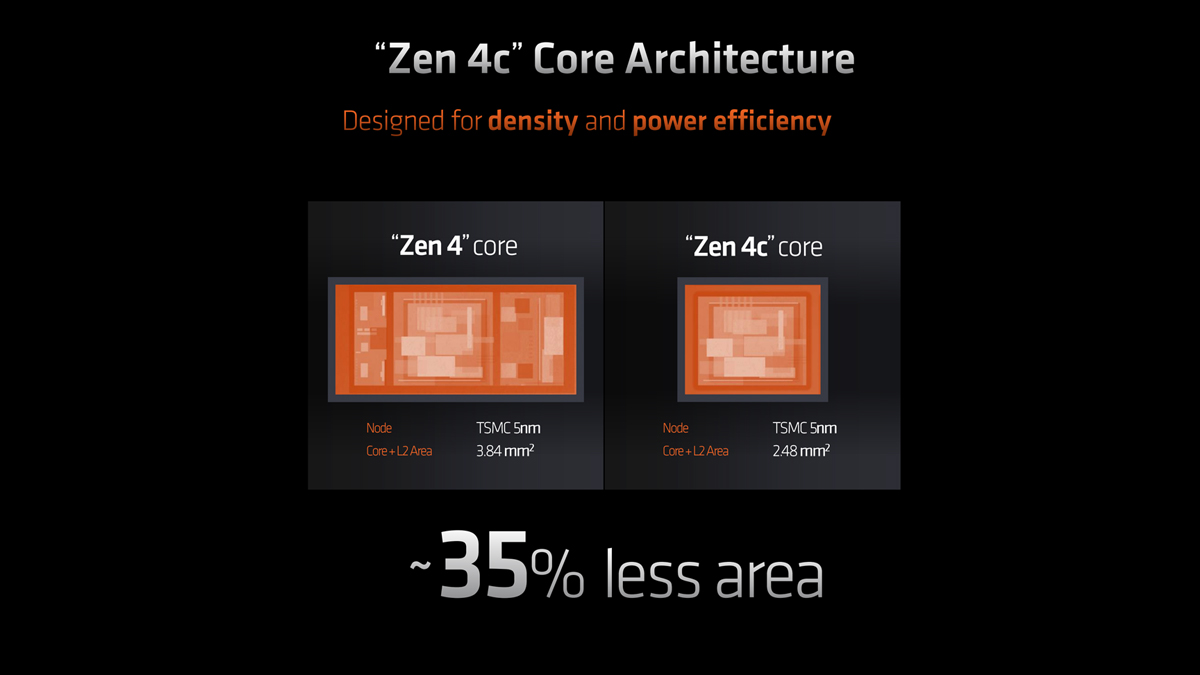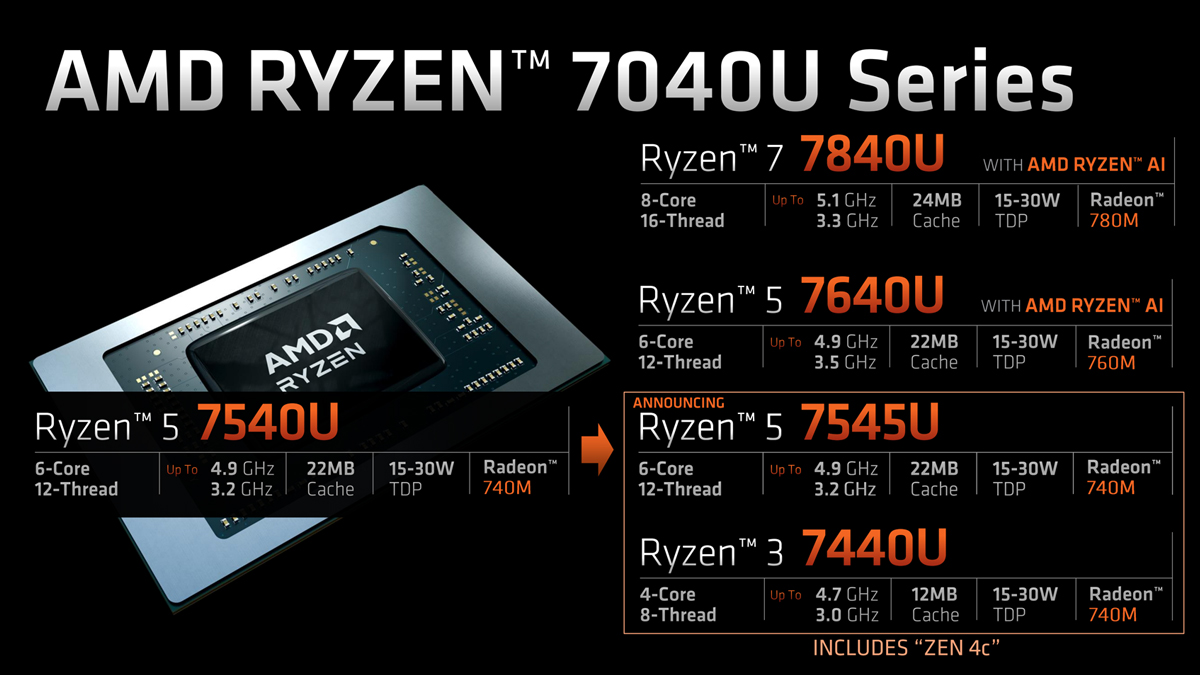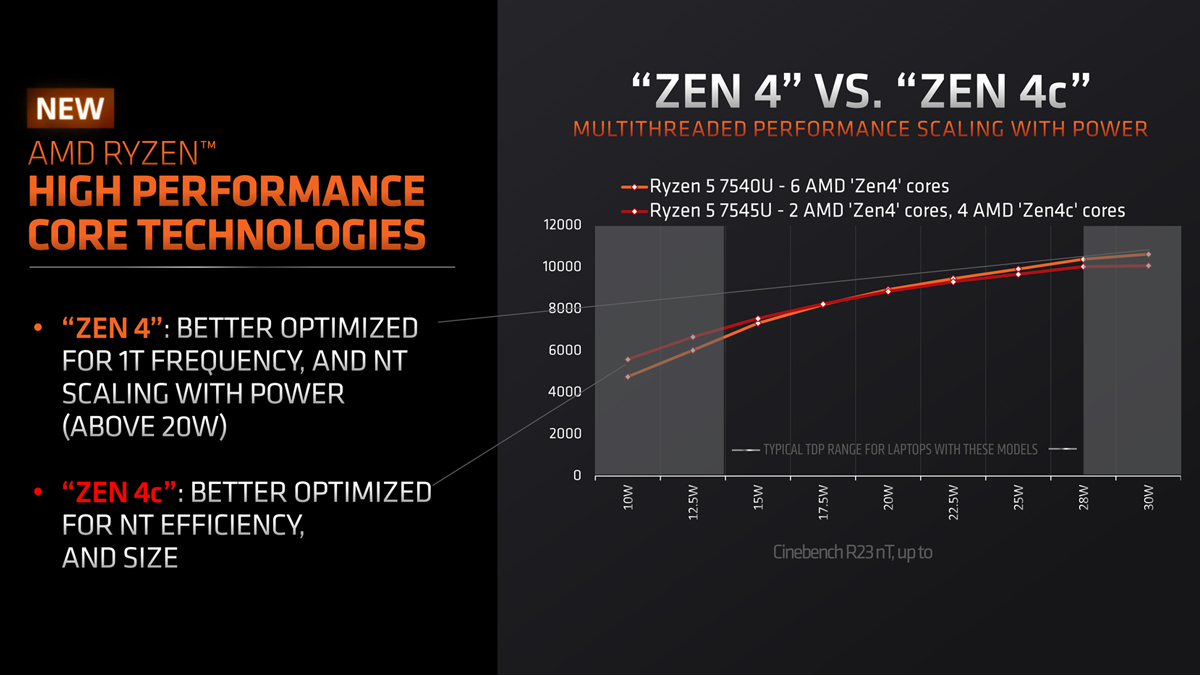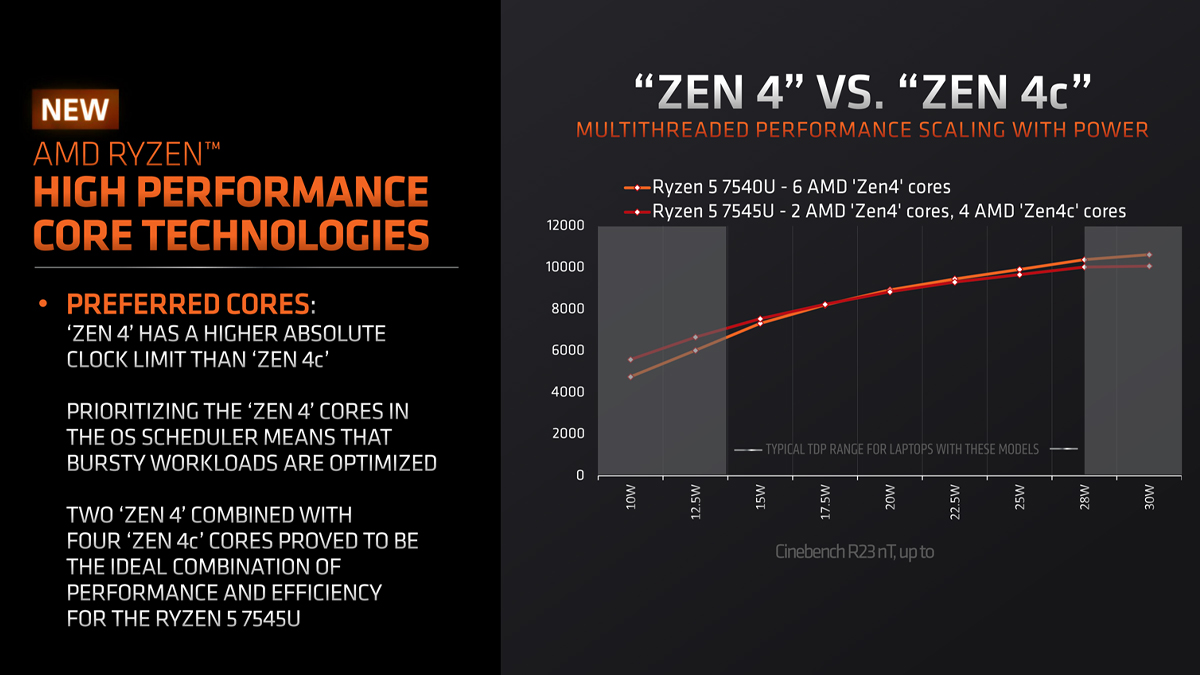Fresh off launching its high end desktop processors late last month, AMD is now back again with not exactly a new lineup of processors, but rather two more additions to their existing Ryzen 7040U lineup. Unlike the previous Zen 4-based processors though such as the Ryzen 7 7840U, AMD’s new mobile chips feature a somewhat heterogeneous design, using both Zen 4 and Zen 4c, a smaller sized core that was designed for density and power efficiency.
Zen 4c vs Zen 4

Let’s first take a look at how Zen 4c stacks up against the regular Zen 4 core architecture. AMD says that the goal behind the Zen 4c core architecture was threefold: efficiency, density and performance. The Zen 4c core achieves the first two goals for the most part, with a die size that’s 35% smaller and also more power efficient. By using smaller, denser cores though, it does lose the ability to reach the same kind of peak clock speeds that Zen 4 can do. That being said, feature-wise Zen 4c is pretty much identical to Zen 4, just smaller. Zen 4c’s efficiency and scalability also makes it more ideal for the laptop and mobile segment.
Two new AMD Ryzen 7040U processors
Now technically speaking, these Zen 4c cores are already out in the market, as the Ryzen Z1 powering the cheaper ROG Ally uses some of these Zen 4c cores but AMD is only now officially revealing new mobile processors with Zen 4c cores. The first is the Ryzen 5 7545U, which is almost a near copy of the previous Ryzen 5 7540U except that instead of six Zen 4 cores, it now has two Zen 4 cores, four Zen 4c cores and 12 threads. They run at a base clock speed of 3.2GHz, with boosts of up to 4.9GHz though this likely only applies to the bigger Zen 4 cores. It also has 22MB of cache and uses a Radeon 740M iGPU.

Accompanying the Ryzen 5 7545U is the Ryzen 3 7440U, replacing the previous chip that shared the same name. This new Ryzen 3 7440U comes with one Zen 4 core, three Zen 4c cores and eight threads, running at a base clock of 3.0GHz with boosts of up to 4.7GHz. It has 12MB of cache and a Radeon 740M iGPU too.


According to AMD, using Zen 4c cores in the new and improved Ryzen 5 7545U in particular offers a balance between performance and power efficiency. Windows will still always prioritise Zen 4 cores meaning that bursty workloads remain optimised, while with Zen 4c you get better performance at lower power consumption.
As for availability, AMD had not mentioned when exactly laptops powered by these two new processors will be made available for purchase, though it shouldn’t be too long before their OEM partners begin adopting these chips.







